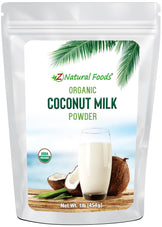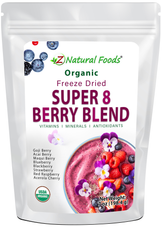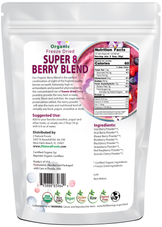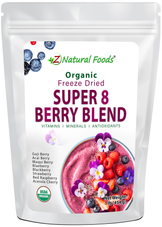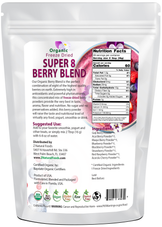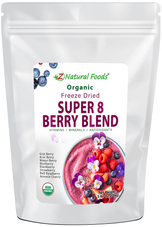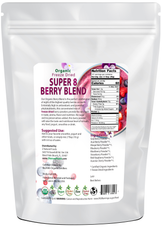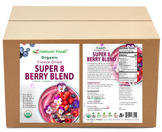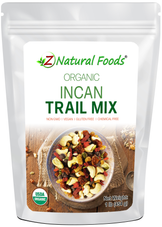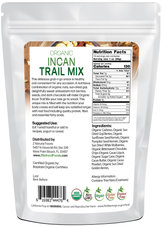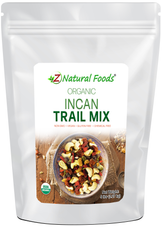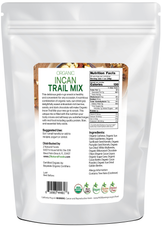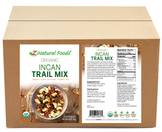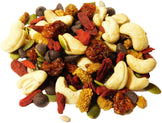Description
Description
As winter's icy grip finally loosens, spring emerges with its promise of renewal.
Sunlight bathes the landscape, flowers burst into bloom, and people eagerly soak up the sun's rays for their essential vitamin D.
However, this seasonal transition isn't universally celebrated.
While spring showcases nature's splendor, it also heralds a challenging period for many individuals. The very elements that make spring beautiful – blooming plants and increased pollen – can trigger a host of uncomfortable symptoms such as sneezing, runny noses, and itchy eyes, turning this season of rebirth into a time of discomfort for allergy sufferers.
You guessed it, allergy season.
For some, this can be a very rough time of year. Here are some solutions which may bring support and relief.
Food Allergies
For this article, I am only going to discuss delayed onset food allergies (IgG) versus more extreme acute cases like an anaphylactic shock response to a food or a bee sting (IgE).
It is the delayed onset allergies that may have a direct connection to how and why our bodies respond to the environment the way it does. Remember, what goes into your body is the end product of our environment. Delayed onset food allergies are simply an unhealthy response mild joint pain, post nasal drip and headaches (just to name a few) to a variety of individual foods. This type of allergy response can take anywhere from a few hours to four days after ingesting the food. The response may be so mild it can be extremely hard to pinpoint the culprit without an expensive blood test which shows IgG protein antibody response to different foods.
It is not uncommon to have delayed onset allergies to a wide variety of foods. It should be noted that IgG allergy responses are often due to high consumption of the same foods on a daily basis, a.k.a. “lack of variety”.
Environmental Allergies
We typically look at an environmental allergies greatest culprit as pollen levels in the air. These type of allergies are most common in the spring and summer because this is when all the flowers and plants are in full bloom. When I speak of environmental allergies, it does not refer to just specific times of the year. Someone can have environmental allergies all year around.
Pollen is not the only culprit in the environment.
Based on your living conditions, there can be a wide variety of mold, dust mites, mildew, smoke residue and pet hair that over time can cause chronic unhealthy immune, inflammation and stress responses.
Because specific allergens can differ based on the area you are in, it is not uncommon that you may respond worse in some areas over others. The response is based on the levels of the allergen in that specific area. This is yet another wonderful example of why looking at things through a reductionist lense is not the answer. The minute you enter a different area from where you normally live, you may confront a different type of pollen or another allergen which may render your allergy treatment ineffective.
Honey is a great example of how this theory works.
The reason it is so important to use a local honey to the area you live in is will contain the specific pollen to that area. This, in turn, triggers the body to produce antibodies to help deal with the problem. I have lived in many different areas. During the spring and summer is when farmers markets are in huge demand. One of the biggest items at farmers markets is honey (local to that area). You can usually find the honey booth between the pickle guy and the CBD oil.
The Food-Environmental Allergy Connection
While many people don’t see the connection between food and environmental allergies, you often can’t have one without the other. The reason is that all types of allergies are an immune/ inflammatory response issue. A few things to note before I break it all down for you into a nice neat package.
- Many people walk around unaware of their delayed onset food allergies because the response can be so mild. Therefore, people have more food sensitivities then they think or know about. These are known as low-grade inflammation responses.
- The majority of people who have environmental allergies also have gut/digestive issues. Chronic gut inflammation has the potential of leading to autoimmune issues.
- Our food not only controls our internal environment but is the end product of our external environmental conditions. In other words, you are what you eat based on where your food came from, how it was grown and the way you store it. (Environmental toxins/mold)
Putting it all together
Allergy issues begin at a very young age and rarely does an issue just happen out of nowhere.
The end result is produced through years of damage. Allergies, whether environmental or food, all begin in the gut.
According to a paper published in 2015 titled “The human microbiome, asthma, and a” the following was concluded.
“The findings of studies employing recently developed techniques such as metagenomics as well as those of epidemiological studies indicate that humans are exposed to fewer microorganisms because of changes in factors such as the use of antibiotics and diet, which are accompanied by increasing susceptibility to asthma and allergies”.
“Moreover, these studies illuminate the differences in the microbiomes of healthy people and those with asthma and allergies. Moreover, they show that early exposure to bacteria may protect against these diseases”. (1)
Whether it is years of antibiotics, bad eating habits (eating fake processed foods and lack of variety in the diet) or the environment where our food is grown (just to name a few) all of these factors take a toll on our gut.
Our digestive system is under chronic stress because of the amount and types of foods so many of us consume. Like a joint or tendon which is often the victim of overuse, our gut lining has its breaking point too. This constant assault causes inflammation of the gut lining and inefficient digestion which in turn causes the lining to break down. The end result, undigested food particles get into the bloodstream. When these food particles enter the bloodstream, they cause an immune system response as if something is invading the body.
If this immune response (which begins as a healthy one) becomes chronic, it causes a chronic inflammatory response. Now you have an overstimulated immune system causing an unhealthy immune response, a.k.a. “autoimmune”.
Add on daily chronic stressors and is it any wonder why our bodies struggle to deal with the environment around us?
The Solution: 5 Steps to Gut Health
If the problem begins in the gut, then the solution lies in the same place.
By focusing on getting your gut healthy, you give yourself the best chance of resolving both the food and environmental issues.
- Eliminate all fake and processed foods
- Eat foods rich in prebiotics- Coconut, Acacia fiber, Plantains, Artichokes
- Eat foods rich in probiotics- Kimchi, Sauerkraut, Fermented grass-fed dairy
- Eat foods that support a healthy immune and inflammatory response:
- 1 Fresh whole Onion daily (Nourishing source of Quercetin)
- 1 cup of Berries daily (Nourishing source of polyphenols)
- 3-4 cloves of Fresh Garlic daily (Rich in Sulfur)
- Wild caught salmon, chia and flax seeds, nuts (Nourishing source of Essential Fatty Acids)
- Turmeric (Rich in curcuminoids), Ginger (Rich in Gingerols) and Rosemary (Rich in Rosmarinic acids)
Remember, when you are looking to resolve multiple chronic issues, more often than not they are interrelated.
In many cases use your “gut” instinct as this is where the solution often lies.
About Michael Stuchiner
Michael Stuchiner is an experienced Master Herbalist, the Head of Education for Z Natural Foods, a teacher and an accomplished author. With a 16-year specialization in medicinal herbs, Mike also has a vast knowledge in tonic and adaptogenic herbalism. Mike has enjoyed a 25-year career as an elite-level competitive powerlifter where he learned to heal his ‘mind and body’ as an avid user of herbal remedies.
As an “in-the-trenches” herbalist, Mike has done more than 85 speaking engagements, consulted with clients ranging from young to elderly, worked with athletes in virtually all sports and with clients who have “dis-ease” states of a wide variety. Mike also mentors student Master Herbalists and will continue to teach the next generation to grow a deeper wisdom of the human body through appropriate herbal remedies.
References
- Amund Riiser. 2015. “The human microbiome, asthma, and allergy”. Pubmed.org Accessed 5/9/18. https://www.ncbi.nlm.nih.gov/pmc/articles/PMC4674907/



